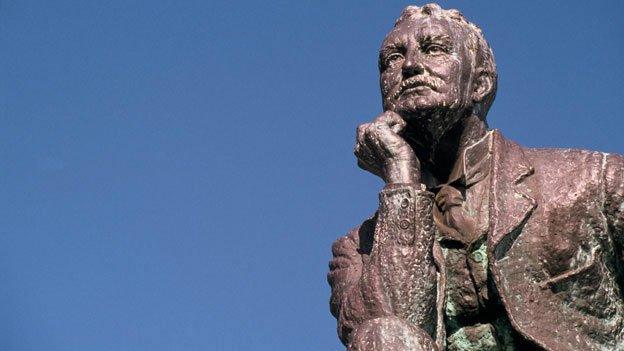Bishop's Stortford: Rhodes Birthplace Trust to be renamed
- Published
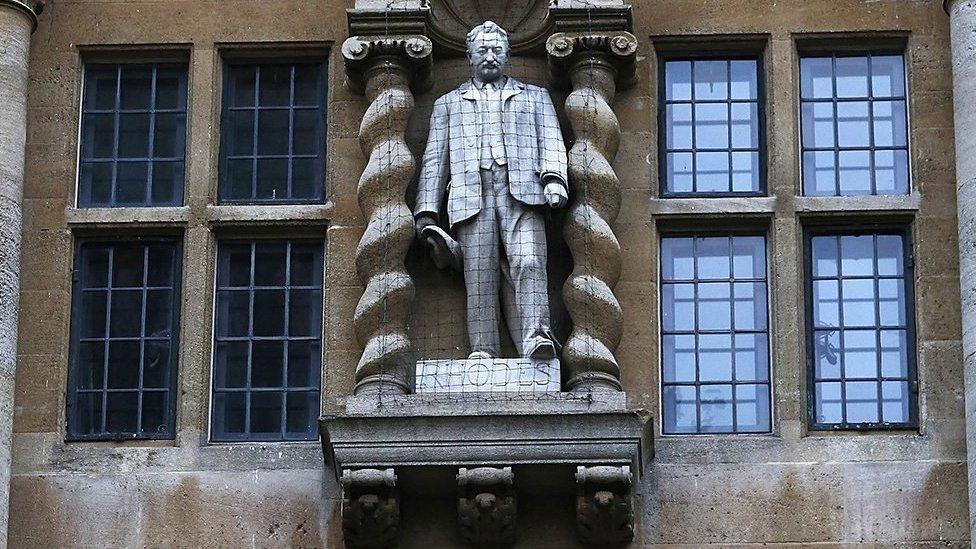
Protesters have been calling for an Oxford college's statue of Cecil Rhodes to be removed
Anti-racism campaigners have welcomed plans to rename the Rhodes Birthplace Trust in the controversial figure's hometown.
Cecil Rhodes, the 19th Century imperialist at the centre of widespread protests to remove pro-slavery statues, was born in Bishop's Stortford.
His former home, as well as streets, an arts venue and even a launderette in the town, are named after him.
Campaign group Stortford Against Rhodes said the change was "long overdue".
In a statement, the group added: "He was a white supremacist and not someone the signatories would like celebrated in this town.
"We need to educate the community on Cecil Rhodes, not exalt him."
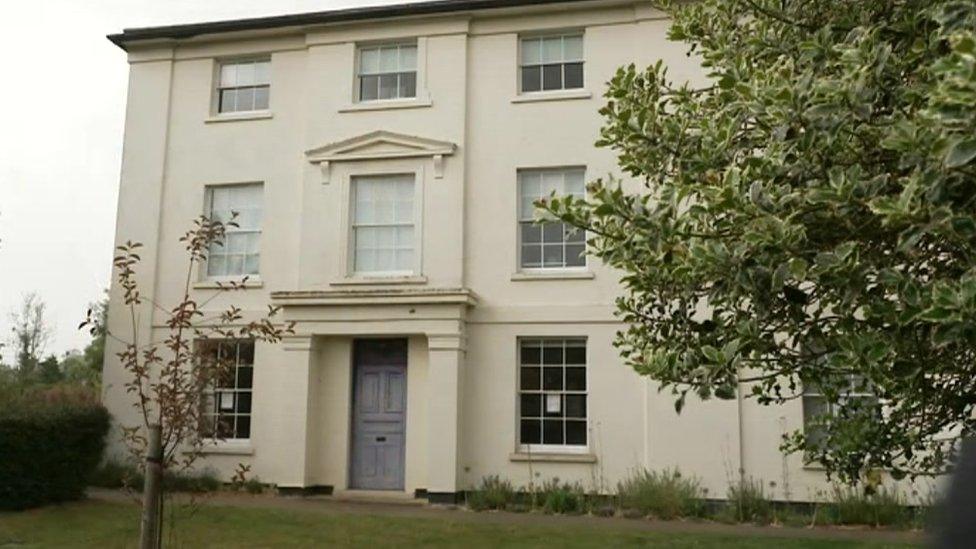
Rhodes was born in this house in Bishop's Stortford in July 1853
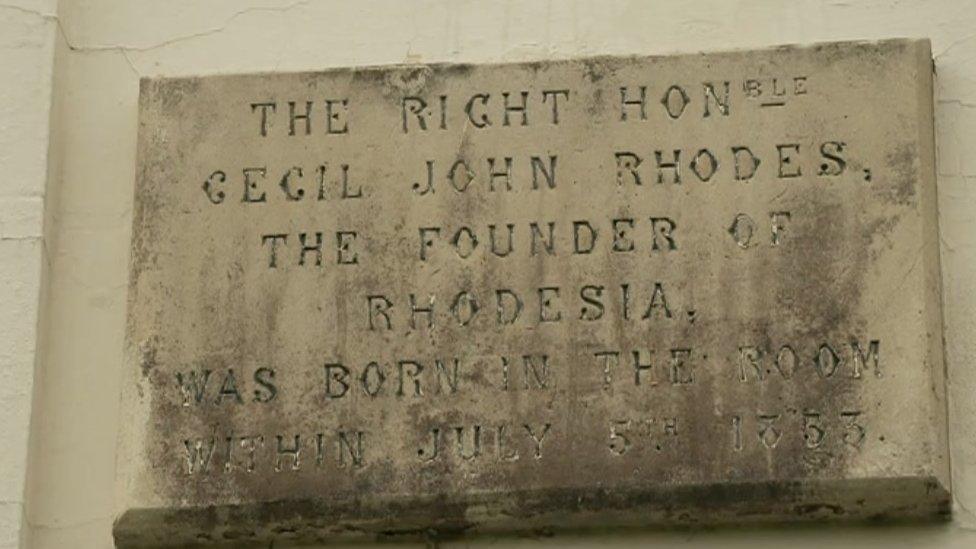
The stone memorial to Rhodes on the wall of his home in Bishop's Stortford
The campaign follows calls by protesters to remove a statue of Rhodes at Oxford University's Oriel College.
A petition to rename Bishop's Stortford's Rhodes Arts Complex after "someone less racist" has attracted more than 2,800 signatures in two days.
It describes the actions of activists in Bristol - who pulled down the statue of the slave trader Edward Colston - as "commendable and inspirational".
Of Rhodes, it adds: "Are we supposed to be proud of this man? It's just a name, and names can be changed."
Deirdre Glasgow, chair of the Rhodes Birthplace Trust, said that "in the light of recent Black Lives Matter movement, the abuse of power and the disregard for basic human rights is unacceptable", adding that the trust was "unequivocal in its condemnation".
A working party set up before the national outcry had begun the process of changing the trust's name to the Bishop's Stortford Museum and Arts Charitable Incorporated Organisation, she said.
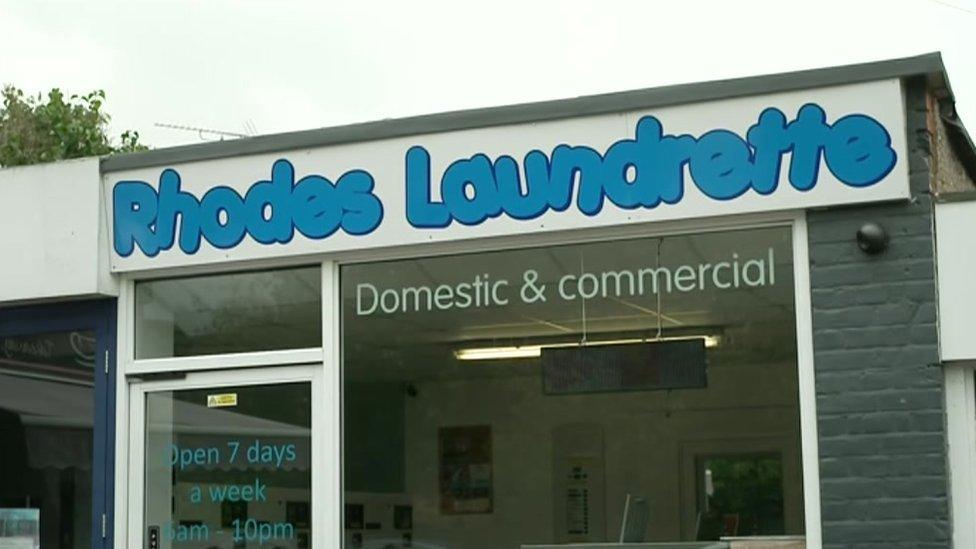
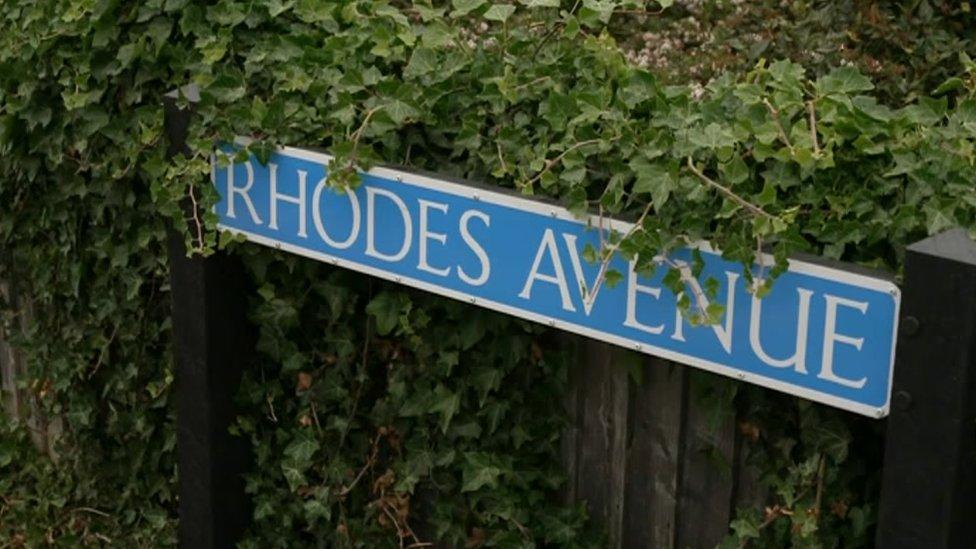
- Published11 June 2020

- Published10 June 2020
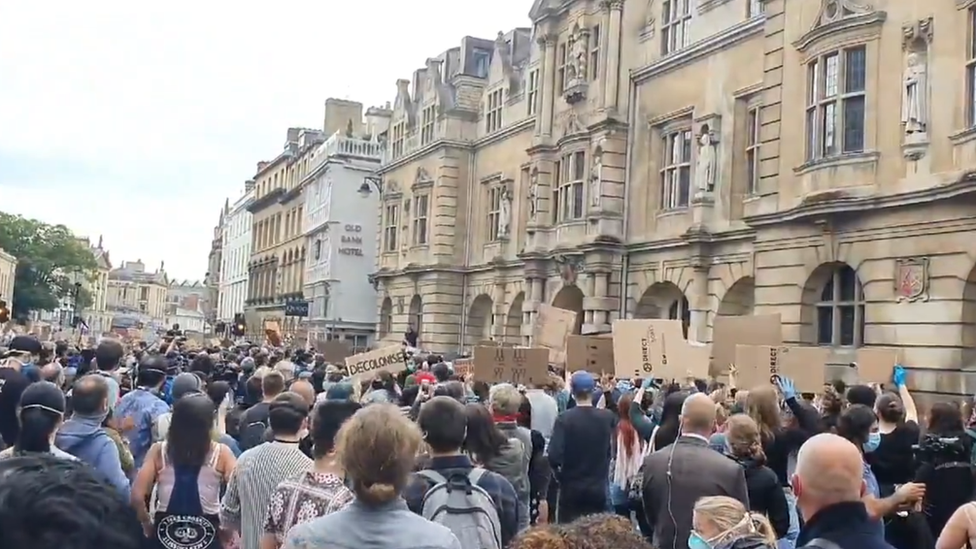
- Published9 June 2020

- Published1 April 2015
